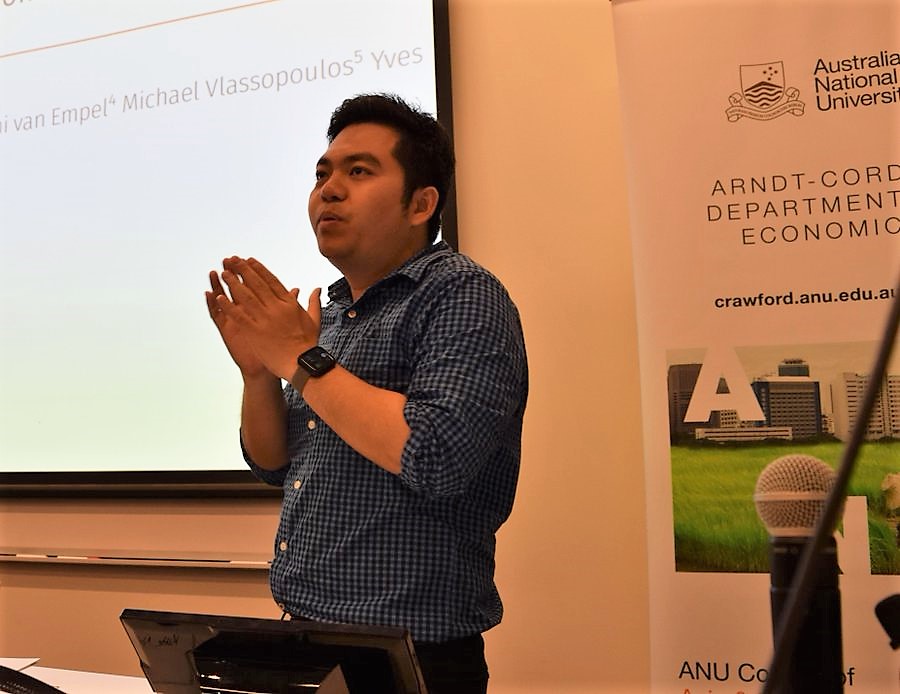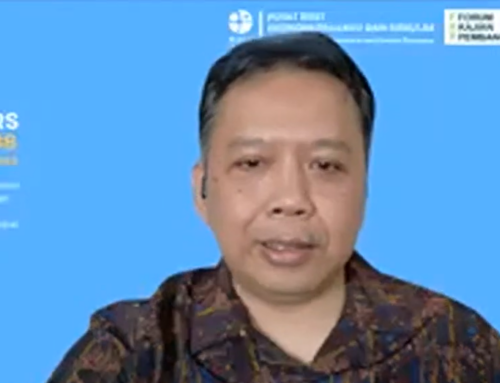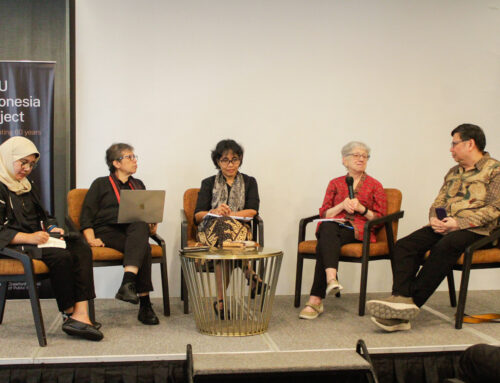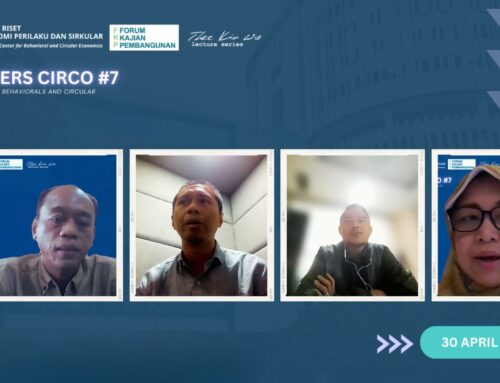FKP hosted by ANU Indonesia Project with Armand Sim (Monash University). Tuesday, 15 November 2022.
KEY POINTS:
- A study in rural Indonesia conducted a randomized door-to-door information campaign aimed at promoting COVID-19 vaccination among unvaccinated individuals. The study recruited health cadres, influential individuals, and laypersons as ambassadors to deliver evidence-based information and promote vaccination with the aim of identifying which type of ambassador is most effective by varying the type of ambassador that delivers the information at the village level.
- A door-to-door information campaign aimed at increasing COVID-19 vaccination rates in rural Indonesia did not increase vaccine take-up or registration among the targeted population, regardless of whether the information was delivered by health cadres, nominated individuals, or laypersons. The study suggests that information campaigns may be less effective in promoting vaccination among very hesitant individuals, especially when the incidence of the infectious disease has been falling and immunization coverage is high, and more directive policies such as vaccine mandates may need to be considered.
SUMMARY
- In settings where resistance and rampant misinformation against vaccines exist, the prospect of ending infectious diseases remains a challenge. The Centre for Development Economics and Sustainability, Monash University in collaboration with CISDI and LPEM FEB UI conducted a door-to-door randomized information campaign targeted towards COVID-19 unvaccinated individuals in rural Indonesia to further investigate the issue of vaccine hesitancy. The study recruited ambassadors from local villages’ health cadres, nominated influential individuals, and laypersons) tasked with delivering evidence-based information about COVID-19 vaccines and promoting vaccination through one-on-one meetings, using an interpersonal behavioral change communication approach. The study was conducted in rural areas of West Java over one and a half years after the first vaccination roll-out.
- The study found that the intervention did not increase COVID-19 vaccine take-up/registration among the targeted population. The study offers several possible explanations for the low effectiveness of the intervention. First, the target population of the study is likely to be very hesitant, the participants had not vaccinated one year after vaccines first became available in January 2021. This is supported by the fact that a high proportion of respondents (60%) rejected a hypothetical idea of cash-for-vaccines offer from the government.
- Second, the study found some indication that individuals in the sample became less concerned about the pandemic over time, as indicated by a drop in the propensity to actively seek information related to COVID-19. The proportion of respondents that reported almost-daily consumption of COVID-19 news dropped from 33% at the baseline to 13% at the endline, while monthly news consumption increased from 16% to 40%. This is perhaps not surprising because COVID-19 cases in Indonesia also dropped significantly during that period.
- Previous evidence suggests that the effectiveness of information campaigns hinges on the timing of the intervention. Information campaigns through virtual media (e.g., video messages, text messages, audio recordings) conducted in an earlier stage of the COVID-19 pandemic were successful in raising awareness about COVID-19, promoting preventive health behaviors, flu vaccination, and COVID-19 vaccines. On the other hand, a large-scale information campaign using video messages disseminated through Facebook between December 2021 and March 2022 failed to affect vaccination decisions.
- The main contribution of the study is to provide evidence that the type of ambassador that delivers the information–health cadres, nominated persons, and laypersons–does not seem to matter for the effectiveness of the campaign in this setting. Additionally, unlike previous related studies that were conducted in earlier stages of the pandemic, the evidence from this study suggests that information campaigns in any form might not be very effective in promoting vaccination among very hesitant individuals, especially when the infectious disease incidence has been falling and the immunization coverage is high. In such circumstances, more directive policies, such as vaccine mandates, may need to be considered.





